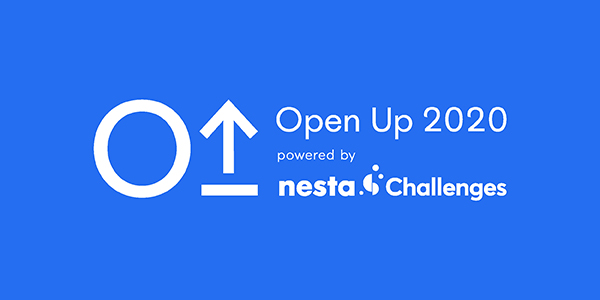
IT Marketing on the cheap
(Full disclosure, I'm an IT Sales and Marketing Consultant, and by a miraculous coincidence, you can contact me here - hello@davefrancisconsulting.com)
If you're running an IT development company in the UK, you'll have realised one thing - Sales and Marketing is expensive.
Standard theory says that you should devote 10-15% of your turnover to marketing your business (some models have you sinking 20% of your profits into Marketing) - in a time when the UK has been hit by a cost of living crisis, increased wage demands by staff, a reduced market for software development and increased competition from cheaper overseas development companies, it may just prove impossible for you to find that kind of money to market your company and drive sales.
At the same time, if you don't invest a large proportion of your company revenue, you may find work drying up, of course. The big risk is that you'll take one look at the costs - or what you're told the costs are - and do nothing instead. As that's "safer". Not in the long run, it isn't.
Tricky, isn't it ?
Do I have to spend so much money ?
Er, no. Absolutely not.
It might come as a relief to you to find out that, if properly handled, you don't have to spend a fortune on marketing your IT business.
The reason why the oft-quoted figure of "between 10 and 15% of your revenue" is wrong is that... it's a generic quote.
Looking on the internet, and Linkedin in particular, you'll notice that there is a huge population of freelance marketers and SEO specialists all trying to sell you a service.
"I wanna be Number 1 !!!"
Yes, you can indeed be number 1 on a search engine for your keyword terms. If you throw enough money at it. You can bring in SEO specialists to optimise your site content six ways from Sunday. At a cost.
What you'll then find is that your competition can step in, pay Google some money, and appear above you in the search rankings. All those "sponsored" Google entries appear above yours, you drop down to page 2 or 3 in the search rankings, and - no matter how good your SEO is or how much money you've spent on SEO services, you've lost the game as your customers will naturally never navigate all the way down to your entry.
So that didn't work. Despite what all the SEO experts told you. Whilst selling you a service which the internet claimed you needed.
You will also find that Google's algorithm identifies who's spending money with them and how much and when. If, for some reason, they stop spending an expected amount every month, Google seemingly knocks them down the search rankings until they start spending again.
Basically, it's become a "let's see who can burn the most money". As that's the way Google makes a profit. It's a business, after all.
You don't wanna be Number 1. It'd be nice if you were, indeed, Number 1. But you'll pay for it, and if you're a small company, paying to be Number 1 is overkill and a very bad (in fact, almost fatal) return on investment. You want to expend just enough to keep your developers busy, and to provide a nice little pipeline of future work.
"Everything is monetised"
When you look at Sales and Marketing, you'll soon realise that everything out there is monetised. Want good exposure on a rating site like Clutch or Business of Apps ? Bring money. Want to increase your Domain Authority via backlinks ? Same thing. PPC campaign ? Google Ads ? Linkedin Ads ? Cold mailing or calling ?
Absolutely everything will cost you. It's really a question of return on investment: you have to spend some money on getting your name out there - unless you're one of these people who believe you can run a car without petrol - so.
"How do you market your IT business for less ? "
Going back to basics
Let's return to that "10-15% proportion of revenue" figure, above.
You might start by asking where the figure comes from. Truth be told, I couldn't answer you. It's a generalisation, to be honest - Marketing covers such a broad subject area that there's really no way that you can put a generic figure on the amount you have to spend on it.
You can't compare, for example, a company who sells ladies fashion over the internet with a specialist IT development company who works in Fintech. To put a blanket figure on marketing spend is completely ridiculous.
Well, unless you're a specialist freelance marketer or agency who can point to a generic figure on the internet and say to an IT company, you should be spending this.
So. Given all the above - how do you market your small IT development company effectively, efficiently and drive more sales and therefore profit ?
Without pulling all the rabbits out of my hat - as I am a freelance IT Sales and Marketing Consultant after all - let me give you two ideas to think about. They won't cost you much to implement, although the trade off is that they will cost you some time and effort.
First class blog content
Google ranks sites with good, authoritative, well written content very highly. Yes, you won't be able to do anything about the perennial problem of Google sponsored content trumping you in search engines, but you'll definitely improve your search engine ranking and domain authority as the result of good, well written, properly hyperlinked content which you encourage others to share.
Besides all that, it produces a professional looking website. Anyone stumbling across it is going to have a bit more involvement with your company if they see you making the effort and also coincidentally coming across as interesting, trustworthy, knowledgeable and insightful human beings.
A word about blog content on IT websites. Ignore this at your peril.....
If you sit back at night with a can of fizzy lager, a packet of Benson and Hedges and feel inclined to write a technical article about the relative merits or demerits of JIT compilers, object oriented programming or PostgreSQL database transactions......... don't. Please. Don't.
Because. Technical posts attract developers only to your website.
Developers don't buy software.
There is a time and a place for technical posts, and it's usually on places like Stack Overflow. "What are you trying to do ? " - attract buyers. Your web traffic may go through the roof as a result of you posting a meisterwerk about some technical detail, but it won't have any relevance to someone wanting to actually engage you to build them some software. Actually, it'll possibly have the diametric opposite effect.
Think of the commercial uses for your software, reference past customers, add quotes, put in relevant hyperlinks, come across as helpful, friendly, knowledgeable, trustworthy and ... normal, well adjusted human beings who someone who isn't in the IT industry feels comfortable doing business with.
It'll cost you time to sit back and write a blog, and you might want to think about hiring an external writer (what a hint I dropped then) - time is the trade off to spending money.
Oh yes. Don't use AI to generate your articles. Because "read what it produces". Which is basically, poor quality, questionable copy. By all means use it to generate a framework or basic idea, but articles without the human touch will not have the punch and effect that an article written by a human will do.
At least not at the moment.
Networking
Here's "part 2 of Dave Reveals All".
"What are you trying to achieve with Sales and Marketing ?"
"You're trying to reach decision makers."
"How ?"
"Primarily by the internet and email."
Let me ask you to sit back and ask yourself a question - how many mails do you get a day ? And what do you do with the avalanche of mails from people you don't want to hear from attempting to sell you goods and services you don't want ?
You junk them. "Move to spam." "Block sender".
Any emails can be blocked. "Marketing" says send out A/B copies and work out which one has the best open and click through rate. It also says send out three mails at, say, weekly spaced intervals.
Just like everyone else does. Probably fine if you're sending countless thousands of mails and selling something like shoes. Not so good for specialised IT development services. Point of fact, you're probably upsetting and irritating members of a small audience who then just block you for being the same irritant as everyone else.
Fact: any decision maker can block or ignore you until you're actually standing in a room with them at some form of networking event with a stale Danish pastry and a plastic cup of budget coffee.
Networking is by far and away the cheapest, most efficient and cost effective way of getting to talk to the people who will eventually buy your software or services. If you're near a major city like London, Birmingham or Manchester, there will be countless numbers of opportunities advertised on Eventbrite or Meetup advertised every month. There are trade shows at places like the NEC , Olympia or Manchester Central. There are specialist organisations - some of which charge membership fees, such as Manchester Digital or local Chambers of Commerce.
There are also a large number of professional networking organisations such as Business Network International and if you're feeling adventurous, there are all kinds of international trade fairs and shows where you can have a team day out, and come back worse for wear with 200 dodgy cigarettes and an exotic hangover. Great team day out.
Occam's razor - the simplest solution is the best. Get out there. Get the business cards printed, QR code on the back. Get talking to those people who'll buy your software, and can't get away from a conversation.
Back them into a corner. Don't forget the breath freshener spray.
Get in touch
For these, and more helpful hints on how to get more sales without financial ruination, feel free to mail me at hello@davefrancisconsulting.com With 30 years in the IT business, I've seen it all done wrong so many times that I now know how to do it right.
Reasonable rates and zero bullsh1t - free initial consultation - happy to talk any time.
Hope you found this useful !









